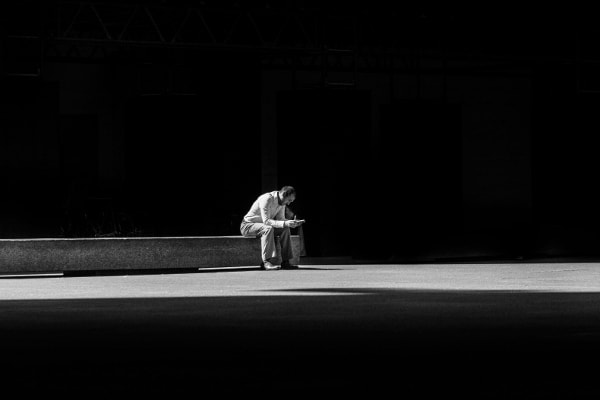Feeling lonely does not necessarily mean you are on your own all the time, but chances are that you tend to stay away from people once you realise that being in the company of others does not alleviate those feelings of loneliness. To be clear, being with others may even exacerbate that sense of being on your own in the midst of a crowd. Let’s face the obvious conclusion: a lonely person may have a lot of time on their hands! Once you feel alone on top of feeling lonely, you’ll be hard put to come up with activities that feel like you are engaging with people, and being part of a crowd. One way to achieve this is to go to places where people are not meant to engage with each other while you are not exactly being alone either: what better place than a shopping mall or a large shopping centre? Being there gives a certain sense of belonging and apparent engagement that will keep you in that space longer than is likely for all those others who don’t like crowds or are more focused on getting their shopping done and move on to more enjoyable activities. The lonely person will likely stay longer, and because they are moving through more isles, going into more shops, they are likely to buy more. If that behaviour is supported over time, it may even turn into a shopping addiction (shopaholics beware!) and lead to serious overspending. When the act of shopping surrounded by people could be reinforced into a sense of feeling alive in that activity, repetition for the sake of feeling better becomes more likely. In the end, you may just end up with more stuff through the simple expedient of being exposed to more things you may potentially like to take with you. Once you return home with your haul, regret could start to set in and hard questions may surface. Did I really need to buy this? Don’t I have that exact thing already? Just how much did I spend on this? All those are valid questions, but the really important question rarely comes to mind: Is this healthy behaviour? To me this feels like displacement activity – an activity that is taken because the intended action to fulfil a particular need has become impossible to perform. Since feeling lonely is based on a perceived lack of interpersonal engagement, another activity takes over to provide an acceptably similar reward in the brain. For some people that could be shopping, because it provides the elements “surrounded by people”, “being active, away from home” and “distracting the mind from emotional distress”; for others that could take a different shape, such as thrill-seeking in physical activities or similar. It all depends on the specific element they associate with the state of ‘not feeling lonely’. Either way, even with more activity driven displacement activities, you’ll end up with a little more stuff that comes into an already potentially crowded home that you are less likely to keep up to standard as there is little likelihood for visitors to ever see where and how you live. The conclusion is simple: clutter affects your emotional state and that state of mind has to be improved along with any efforts to remove some of the clutter and organising the rest a little more. If you have enjoyed reading this, you may find these other articles interesting: Comments are closed.
|
Ask the ClutterMeisterIdeas to help clear away the mess in your homes and in your minds.
Feel free to share any of my posts, but please put in a backlink to the original blog post. Thank you. The author
Hi, my name is Tilo Flache. My mission: help clients declutter mind and space.
This blog contains pointers for your journey towards a happier living experience. Archives
November 2023
|



 RSS Feed
RSS Feed




